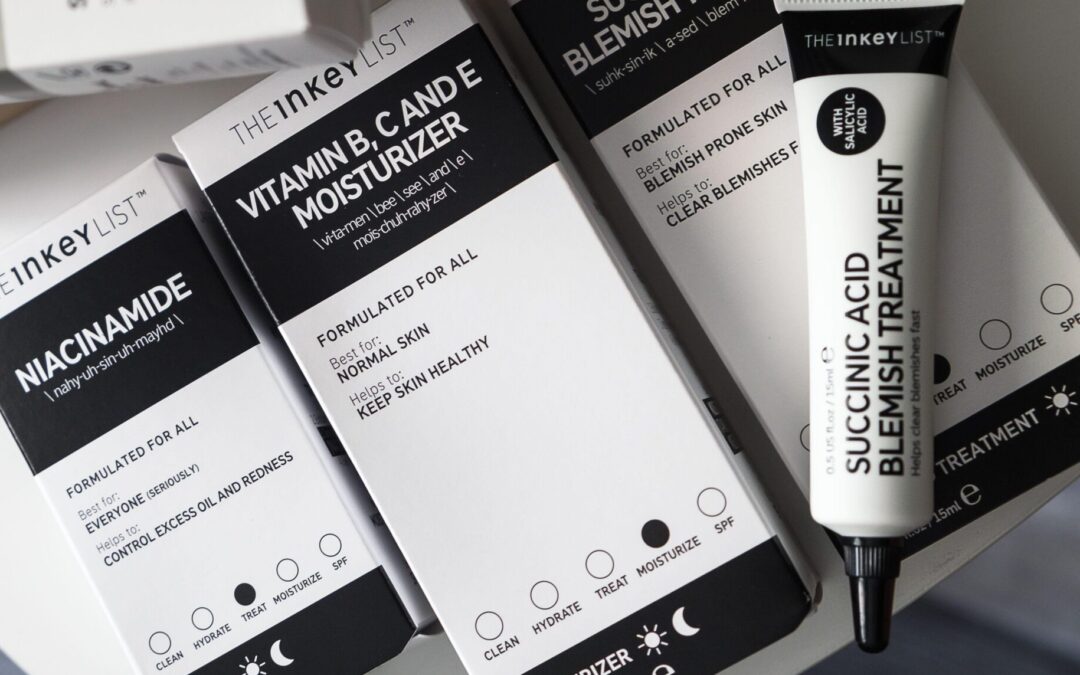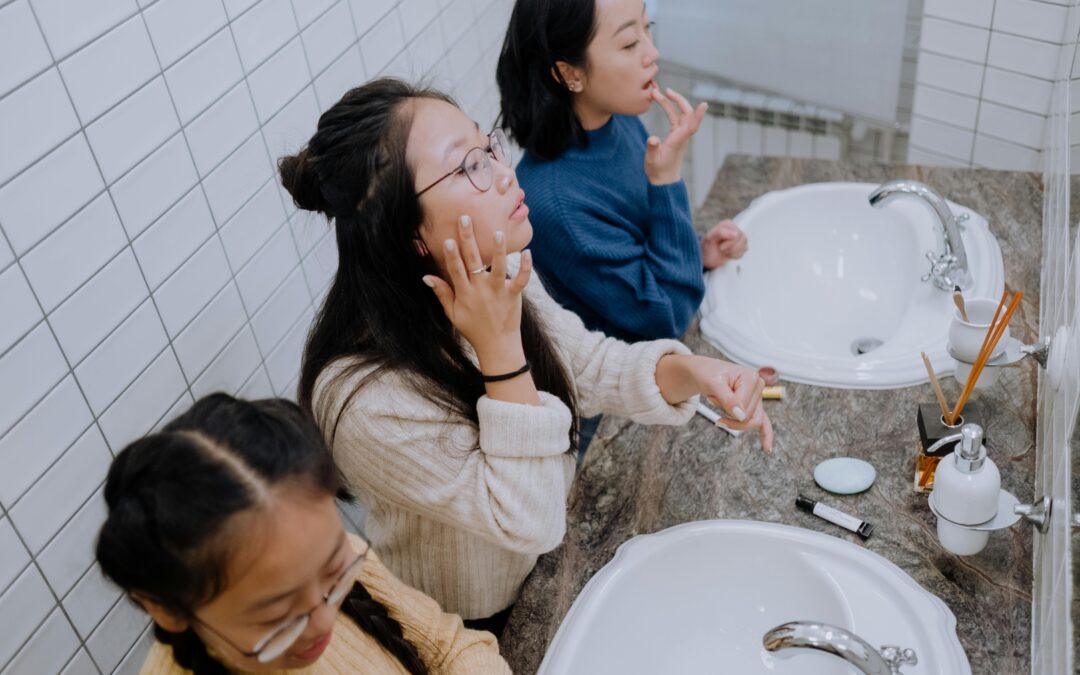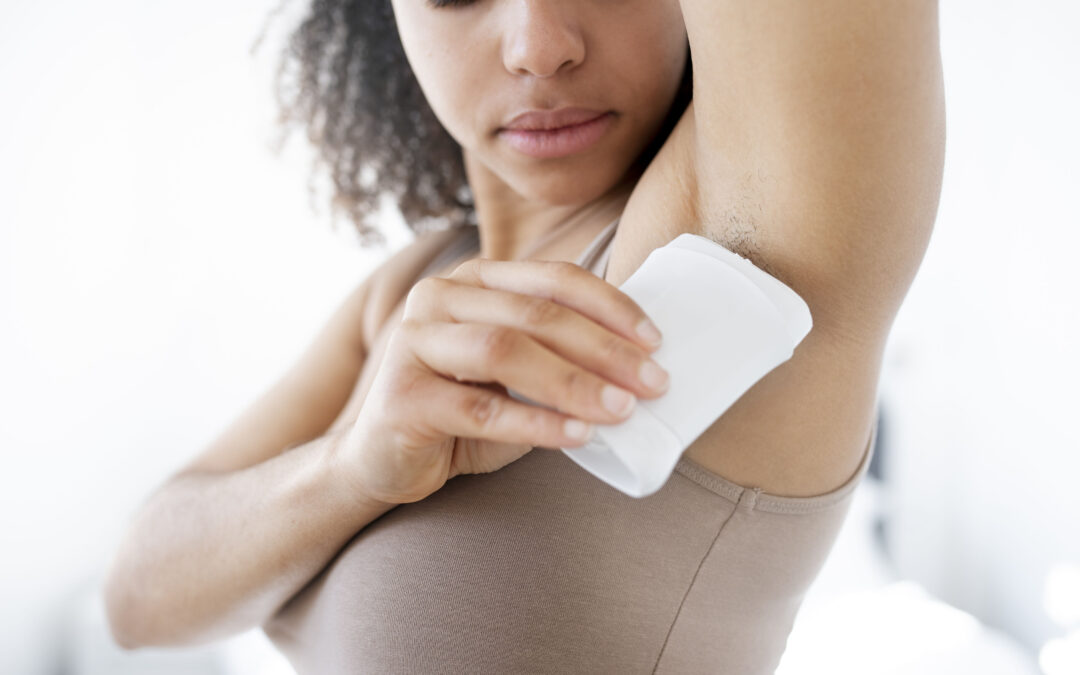“I felt like everything that was once normal to me in some way changed and stopped. I didn’t travel anymore, I wouldn’t go to events, because my skin just looked so bad that I didn’t want to be seen by people. Every area of my life felt like it was controlled based on what my skin looked like that day.”
This is the story of a young woman who has suffered from Rosacea since 2016. In this article, we delve into her story and the ups and downs of her rosacea rollercoaster journey.
Darlene Bauman, from Canada, was 23 when she first developed her Rosacea. She is now 32 and has recently suffered from a second flare up.
We have also spoken to Dr Stephen Lewellis, a New York based dermatologist who specializes in treating Rosacea.
“Rosacea is a really frustrating skin disease that tends to manifest as a redness around the cheeks and the nose especially, but can be in other areas that can fluctuate with certain triggers.” He says. “It can also have dilated blood vessels amongst that redness, as well as pimples or pustules, which can look like acne bumps.”
READ MORE: Perioral dermatitis; everything you need to know
It is a common skin condition that isn’t often addressed. Many well known faces are open about suffering with Rosacea such as singer Sam Smith and actress Cynthia Nixon. It even is speculated it runs in the UK royal family, with experts reporting Prince William and Princess Diana suffered with it.
Darlene says: “I got dermatitis before I got rosacea and then I went on some antibiotics for that because I didn’t know what it was. I was on antibiotics for about a year and then when I came off them I suddenly had full-blown rosacea all over my face.”
The main question most of us have when it comes to a skin imperfection is how quickly can we get rid of it.
Dr Lewellis says: “The short and easy answer to whether it is curable, is no. However, while that’s technically true and I would never tell a patient that they will absolutely never have a flare of rosacea again, there are some root causes and triggers that if we can identify are going to make your rosacea burden over your life much less, maybe even prevent any future breakouts.”
Darlene opened up about her past struggles and how her obsession over her skin bled into every area of her life, even damaging family and romantic relationships.
“I felt like everything that was once normal to me in some way changed and stopped.” She says. “I didn’t travel anymore, I wouldn’t go to events, because my skin just looked so bad that I didn’t want to be seen by people. Every area of my life felt like it was controlled based on what my skin looked like that day.”
These developed into physical struggles as well.
“During my first five years of having it, I spent a lot of time going to the doctors and I was told by them to just take medication, external things that weren’t working for me.” She says. “It was extremely frustrating.”
READ MORE: Dealing with acne in your 20s in the social media age
Darlene started doing her own research by reddit posts and google posts. These posts contained a lot of misinformation, and she started restricting healthy things from her diet.
“If I saw someone that said: “oh I ate an orange and my skin got worse”, I would cut out oranges, and same goes with coffee and onions and a million different things. It’s so easy to get sucked into a rabbit hole.
“Restricting myself with no reason was the most damaging thing I could’ve done. It eventually got to a point where I basically had developed an eating disorder my diet was so small and narrow. A lot of people with rosacea fall into this place,” she says.
Since then, Darlene has experimented with other, more healthy ways of managing her rosacea, alongside professional advice.
“With my journey I’ve noticed that it’s more of a wide range of things like how you are showing up for yourself in small ways on a day-to-day but in different areas. How are you supporting your liver day-to-day? How are you supporting your gut or even your emotions?,” she says.
Dr Lewellis likes a combination of medical and holistic approach to treating rosacea, as not all people are compatible with the same treatment. He tends to start with a mixture between prescription and nonprescription products as well recommending cutting out common triggers from the patient’s lifestyle, such as extremely spicy food and high quantities of alcohol.
He also recommends, although easier said than done, to try and reduce anxiety and stress, as chronic stress levels in the body tend to result in inflammation of the skin.
“I really like combination topical treatments and I will often combine them in one single customized cream or gel. For example, ‘ivermectin’ is a common one and if the patient is bothered by redness I will often throw in ‘brimonidine tartrate’ , a topical treatment that reduces blood vessels dilation.”
In terms of skincare, Dr Lewellis suggests less is more to begin rebuilding your skin barrier.
“Choose a gentle cleanser, a fragrance-free moisturiser and maybe niacinamide.” He says.
Despite Darlene having a long and tough journey of acceptance, this second time round experiencing rosacea has been significantly different .
“ The coolest part of my journey is who I’ve become on a personal level. I’ve cried my way through and it hasn’t been comfortable but I don’t think I would be the same person I am today without my rosacea.”
Darlene has also built a community on her Instagram, a safe-space which records her journey with rosacea to hopefully help others.
“I just kind of owe it to people to be some type of voice. I like the vulnerability of it and to be very honest as there’s so much misinformation.”
If you have suffered or are suffering with rosacea please consult the NHS website for further information.




